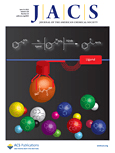
Journal of the American Chemical Society
Scope & Guideline
Shaping the Future of Chemistry Through Rigorous Research
Introduction
Aims and Scopes
- Catalysis and Reaction Mechanisms:
Research on catalytic processes, including the development of novel catalysts, mechanistic studies, and applications in organic synthesis and energy conversion. - Materials Science and Nanotechnology:
Studies focusing on the design, synthesis, and application of new materials, including nanostructures, polymers, and metal-organic frameworks for various applications. - Biochemistry and Chemical Biology:
Investigations into the chemical basis of biological processes, including enzyme mechanisms, protein interactions, and the development of therapeutics. - Sustainable and Green Chemistry:
Research aimed at developing environmentally friendly methodologies, including the utilization of renewable resources and the design of processes with reduced environmental impact. - Electrochemistry and Energy Storage:
Studies related to electrochemical processes, energy conversion, and storage systems, including batteries and fuel cells. - Computational Chemistry and Theoretical Studies:
Application of computational methods to predict chemical behavior, understand reaction mechanisms, and guide experimental design.
Trending and Emerging
- Photocatalysis and Photoredox Chemistry:
There is a significant increase in research exploring photocatalytic reactions and photoredox processes, indicating a growing interest in utilizing light for chemical transformations. - Artificial Intelligence and Machine Learning in Chemistry:
The integration of AI and machine learning techniques in chemical research is gaining momentum, with studies focusing on predictive modeling, reaction optimization, and materials discovery. - Biomimetic and Bioinspired Materials:
Research on materials and processes inspired by biological systems is trending, particularly in the development of new catalysts, drug delivery systems, and environmentally friendly materials. - Electrocatalysis for Energy Conversion:
Emerging research highlights electrocatalytic processes for energy conversion and storage, particularly in the context of CO2 reduction, hydrogen production, and battery technologies. - Dynamic Covalent Chemistry:
The use of dynamic covalent bonds for creating adaptive and responsive materials is increasingly popular, reflecting a trend towards materials that can change properties in response to external stimuli.
Declining or Waning
- Traditional Organic Synthesis:
There is a noticeable shift away from classical organic synthesis methods towards more innovative, sustainable, and automated approaches, reflecting a broader trend towards efficiency and environmental considerations. - Inorganic Chemistry without Functional Applications:
Research purely focused on traditional inorganic chemistry without clear functional applications is less frequently represented, as the journal emphasizes studies with real-world relevance and interdisciplinary connections. - Basic Photochemistry:
While photochemistry remains a significant area, the focus on basic photochemical studies without a clear application or innovative approach appears to be diminishing in favor of more applied research. - Polymer Chemistry without Sustainability Focus:
Research on polymer chemistry that does not address sustainability or recycling aspects is becoming less prominent, as the emphasis shifts towards environmentally friendly materials and processes.
Similar Journals
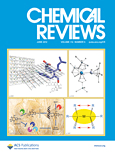
CHEMICAL REVIEWS
Advancing the Frontiers of Chemical Knowledge.Chemical Reviews, published by the American Chemical Society, is a leading journal in the field of chemistry, renowned for its comprehensive and authoritative reviews on a wide range of chemical topics. With its ISSN 0009-2665 and E-ISSN 1520-6890, this prestigious journal has maintained a remarkable trajectory since its inception in 1924, continuously contributing to advancements in the chemical sciences. As a Q1 journal in the Chemistry (miscellaneous) category, it stands at the forefront of research, boasting an impressive Scopus rank of #1 out of 408 in the field of General Chemistry, positioning it within the top 1% of the field. Chemical Reviews offers invaluable insights and serves as a critical resource for researchers, professionals, and students alike, facilitating knowledge exchange and fostering innovation in chemistry. While currently not open access, it remains a vital component of the scientific community, gathering an extensive readership base eager for the latest developments, methodologies, and theoretical frameworks in this dynamic discipline.
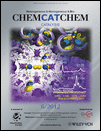
ChemCatChem
Transforming Ideas into Breakthroughs in Chemistry.ChemCatChem is a leading international journal published by WILEY-V C H VERLAG GMBH that has been making significant contributions to the fields of catalysis, inorganic and organic chemistry, as well as physical and theoretical chemistry since its inception in 2009. With an established reputation for excellence, this journal holds commendable rankings in various categories, including Q1 in Inorganic Chemistry and Q1 in Organic Chemistry, demonstrating its pivotal role in advancing scientific knowledge and innovation. Notably, it has achieved a high Scopus ranking, securing 10th place out of 79 in Inorganic Chemistry, among others, showcasing its influence and quality. Although open access options are not available, the journal offers cutting-edge research articles, reviews, and insights that are vital for researchers, professionals, and students aiming to stay at the forefront of chemical science. With its address rooted in Weinheim, Germany, and convergence projected to continue until 2024, ChemCatChem remains a dynamic platform for disseminating vital advancements within the chemical community.

CHEMICAL JOURNAL OF CHINESE UNIVERSITIES-CHINESE
Nurturing a Community of Chemistry Innovators.CHEMICAL JOURNAL OF CHINESE UNIVERSITIES-CHINESE, published by Higher Education Press, serves as a vital platform for advancing research in the field of chemistry. With a history dating back to 1996, this journal has evolved to encompass a wide range of topics fundamental to the chemistry community, catering to both applied and theoretical perspectives. Although classified in Quartile 4 within the broader chemistry category, it remains a significant contributor to the knowledge base, ranking 281st out of 408 journals in the general chemistry category according to Scopus. Positioned in Beijing, China, the journal aims to foster collaboration among researchers and professionals while disseminating innovative research and developments. By promoting open exchange of ideas in chemistry, it strives to elevate the scholarly dialogue and contribute to ongoing education for students and professionals alike, with its content accessible through institutional subscriptions.
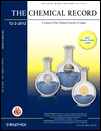
CHEMICAL RECORD
Pioneering Discoveries in Chemistry and BiochemistryThe Chemical Record is a prestigious peer-reviewed journal published by WILEY-V C H VERLAG GMBH, focusing on innovative research and developments across the diverse and evolving fields of chemistry and biochemistry. With an esteemed 2023 Impact Factor and recognized as a Q1 journal in several categories—including Biochemistry, Chemical Engineering, and Materials Chemistry—The Chemical Record stands as a critical resource for researchers, professionals, and students aiming to disseminate and acquire knowledge in these disciplines. The journal's engaging scope covers contemporary topics and fosters collaboration within the global scientific community, ensuring accessibility to cutting-edge research. By publishing articles that meet the highest standards of scholarship, it has earned a significant place within the academic ecosystem, as reflected in its strong Scopus rankings. Although The Chemical Record operates without open access, it remains deeply committed to advancing the field of chemistry through rigorous and impactful publications that bridge gaps between theory and practice.
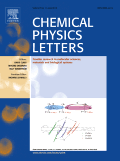
CHEMICAL PHYSICS LETTERS
Advancing the Frontiers of Chemical PhysicsCHEMICAL PHYSICS LETTERS, published by Elsevier, is a prestigious journal that has been at the forefront of advancing knowledge in the fields of physical and theoretical chemistry and physics since its inception in 1967. With an impressive impact factor reflective of its high-quality research output, this journal holds Q2 quartile rankings in both the Physical and Theoretical Chemistry and Physics and Astronomy categories for 2023. It is recognized as a key platform for disseminating groundbreaking findings, with Scopus rankings placing it within the top 76th and 66th percentiles in its respective categories. Researchers and professionals benefit from its insightful contributions and rigorous peer-review process, making it an essential resource for those engaged in cutting-edge chemical physics studies. Although the journal is not open access, it remains accessible through various institutional subscriptions, ensuring that a wide audience can explore its wealth of knowledge. Located in Amsterdam, Netherlands, the journal continues to drive innovation and collaboration across diverse scientific disciplines.

JACS Au
Connecting researchers to the pulse of cutting-edge chemistry.JACS Au, published by the American Chemical Society, is a premier open access journal dedicated to advancing research in the rapidly evolving fields of analytical chemistry, organic chemistry, and theoretical chemistry. Since its inception in 2021, JACS Au has quickly established itself as a leading platform for high-quality research, reflected in its Q1 rankings across multiple categories for 2023, including Organic Chemistry and Analytical Chemistry. The journal focuses on innovative methodologies and applications that drive the discipline forward, making it an essential resource for researchers, professionals, and students alike. With an impressive Scopus ranking, consistently placing in the top tiers of its categories, and offering a broad range of access options for its readership, JACS Au aims to foster collaboration and disseminate transformative ideas that impact the global scientific community. Exploring diverse topics within chemistry, this journal provides a vital conduit for sharing groundbreaking research and enhancing scientific dialogue.

HELVETICA CHIMICA ACTA
Pioneering Insights in Biochemistry and BeyondHELVETICA CHIMICA ACTA, published by WILEY-V C H VERLAG GMBH, stands as a pivotal journal in the fields of chemistry and chemical research. Established in 1918, this esteemed journal spans a diverse array of topics, including biochemistry, catalysis, drug discovery, inorganic and organic chemistry, as well as physical and theoretical chemistry. With influence reflected in its noteworthy Q2 and Q3 quartile rankings across these categories as of 2023, HELVETICA CHIMICA ACTA continues to capture the interest of the global scientific community. Although not an open-access journal, it remains accessible through various academic institutions, ensuring broad reach and collaboration opportunities. Researchers, professionals, and students alike will find its meticulously peer-reviewed articles critical for advancing knowledge and fostering innovation within the chemical sciences. As the journal converges toward 2024, it remains committed to publishing high-quality, impactful research that supports the evolution of chemistry across its multifaceted disciplines.
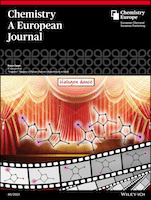
CHEMISTRY-A EUROPEAN JOURNAL
Innovating Catalysis for a Sustainable FutureCHEMISTRY-A EUROPEAN JOURNAL is a premier academic journal published by WILEY-V C H VERLAG GMBH, specializing in the diverse fields of chemistry and catalysis, with a distinguished focus on organic chemistry. Since its inception in 1995, the journal has established itself as an authoritative resource for researchers and professionals, currently classified in Q1 in Chemistry (miscellaneous) and Organic Chemistry, reflecting its high-quality contributions to the scientific community. With an impressive impact factor and robust Scopus rankings—#33 in Organic Chemistry and #26 in Catalysis—this journal serves as a vital platform for disseminating innovative research findings and critical advancements in chemical sciences. Although not an open-access journal, it provides valuable access options for institutions, ensuring wide reach and engagement within the scientific community. As it converges into 2024, CHEMISTRY-A EUROPEAN JOURNAL remains a key resource for anyone dedicated to advancing the frontiers of chemistry research.

RUSSIAN CHEMICAL BULLETIN
Delivering Essential Findings for Tomorrow's Chemists.RUSSIAN CHEMICAL BULLETIN, published by SPRINGER, serves as a pivotal resource in the field of general chemistry, covering a wide array of topics that impact both theoretical and applied chemistry. With an ISSN of 1066-5285 and a presence since 1993, this journal provides a platform for disseminating significant research findings, practical applications, and novel methodologies within the broader chemistry community. While it currently holds a Q3 ranking in the Chemistry (miscellaneous) category and occupies the 230th position out of 408 in the Scopus rankings, its reputation continues to grow, fostering collaboration and innovation among researchers and professionals alike. Although the journal does not offer an open-access model, it is committed to making findings accessible within the academic community, ensuring that valuable insights can inform future research. With an anticipated convergence of studies extending to 2024, the RUSSIAN CHEMICAL BULLETIN remains an essential reference for those dedicated to advancing chemical science.

ACS Organic & Inorganic Au
Exploring the Intersection of Organic and Inorganic ChemistryACS Organic & Inorganic Au, published by the American Chemical Society, stands as a premier open-access journal dedicated to advancing the fields of organic and inorganic chemistry. Since its inception in 2021, this journal has swiftly risen to prominence, achieving a commendable Q1 classification in Inorganic Chemistry, Organic Chemistry, and Physical and Theoretical Chemistry as of 2023. With an ISSN of 2694-247X, it provides a vital platform for researchers, professionals, and students to disseminate their findings and engage with cutting-edge work across converged disciplines. Operating from its headquarters in Washington, DC, ACS Organic & Inorganic Au is committed to fostering a collaborative research environment, encouraging rigorous peer review, and ensuring the wide accessibility of high-quality scholarly articles. With its open-access model, readers worldwide can freely access and utilize research findings, promoting a global exchange of knowledge crucial for driving innovation in chemistry.